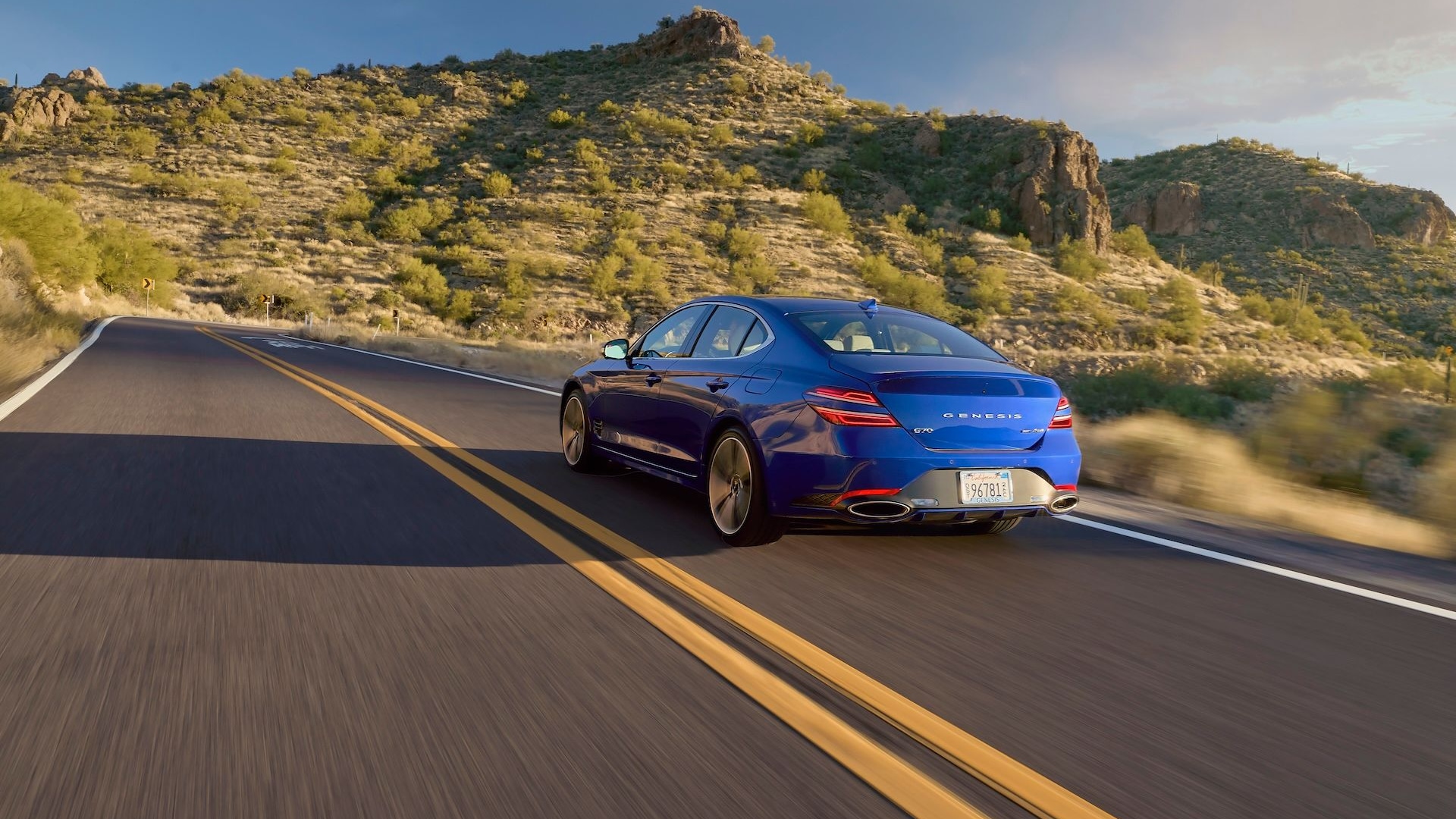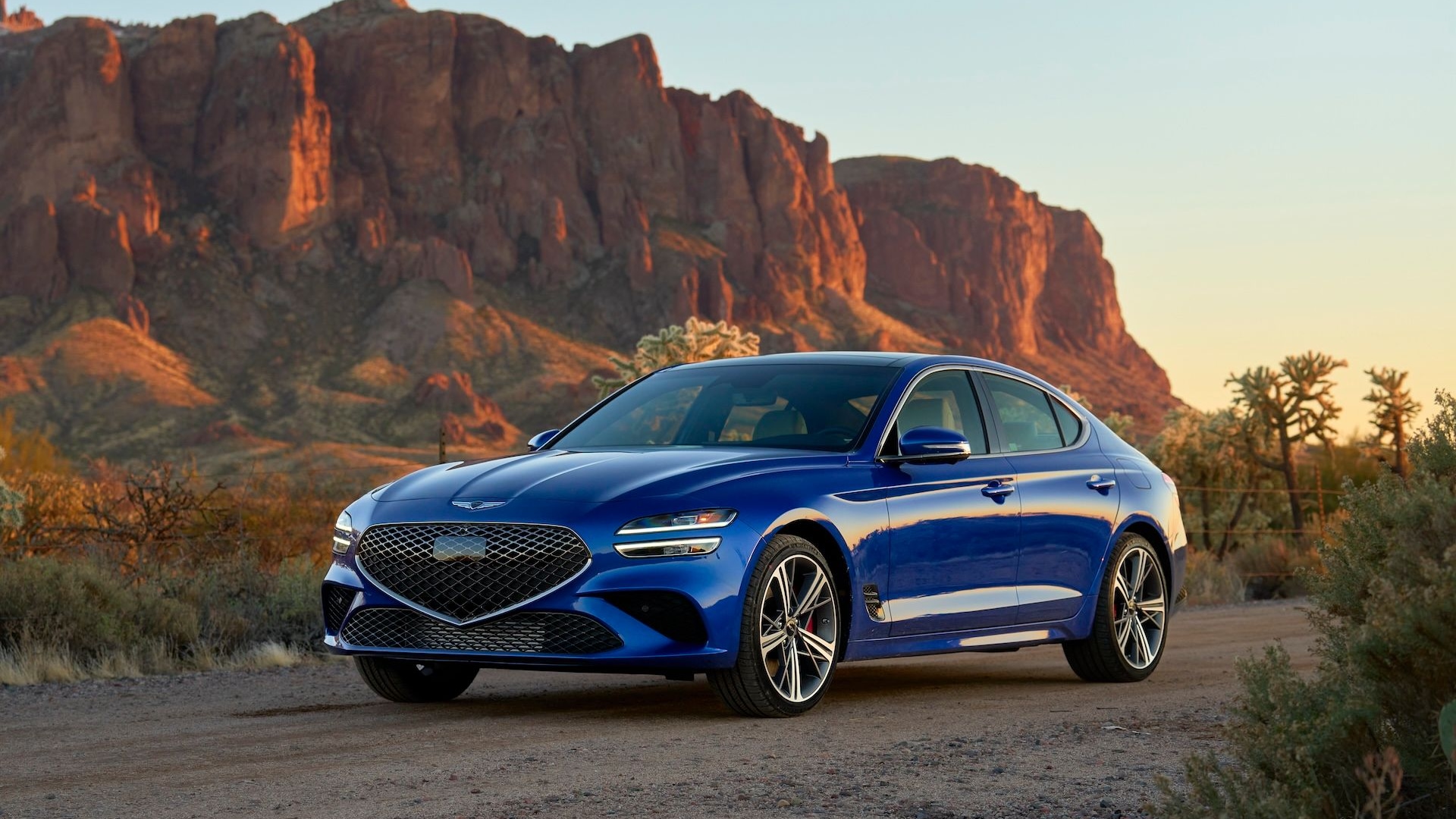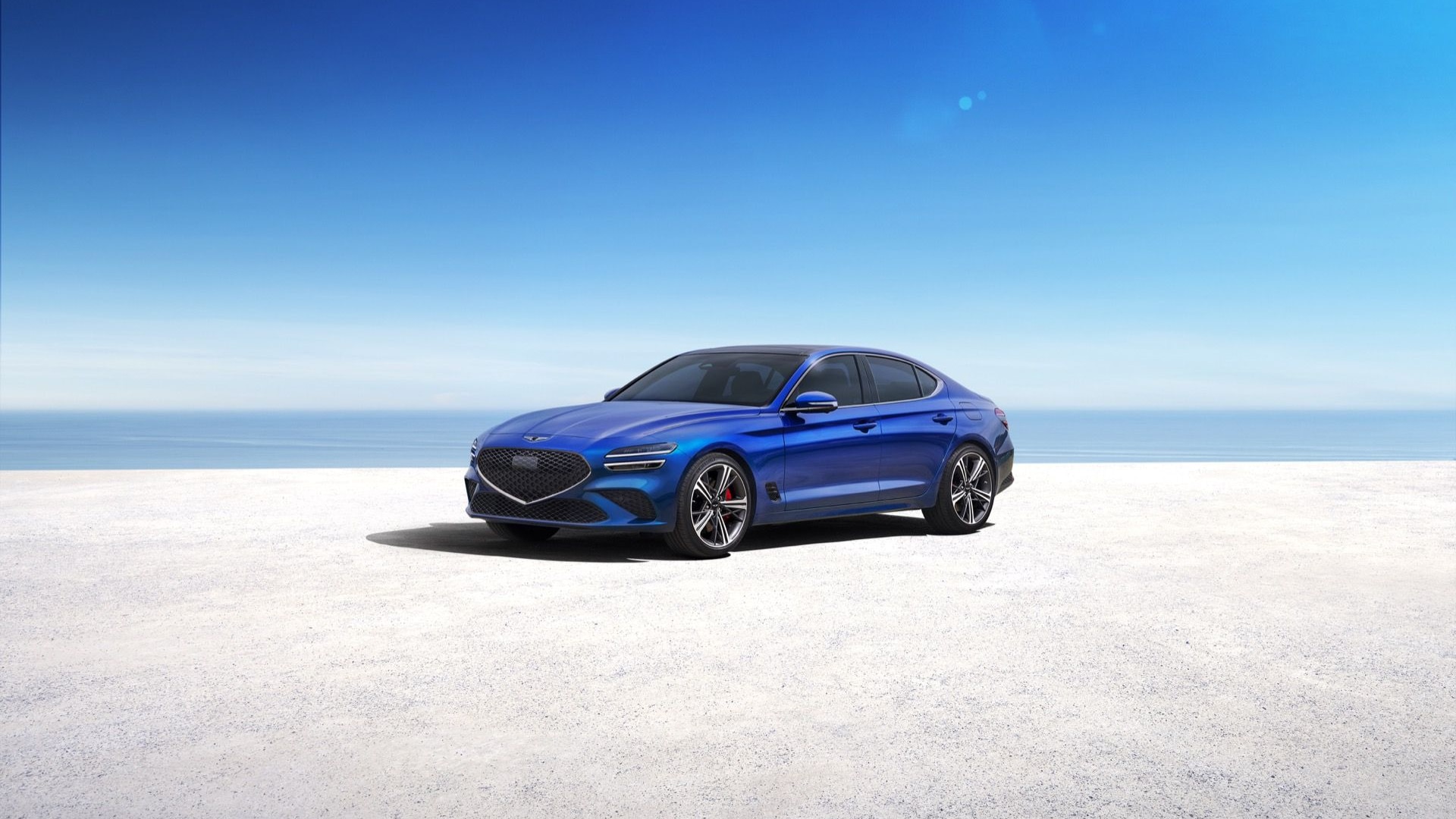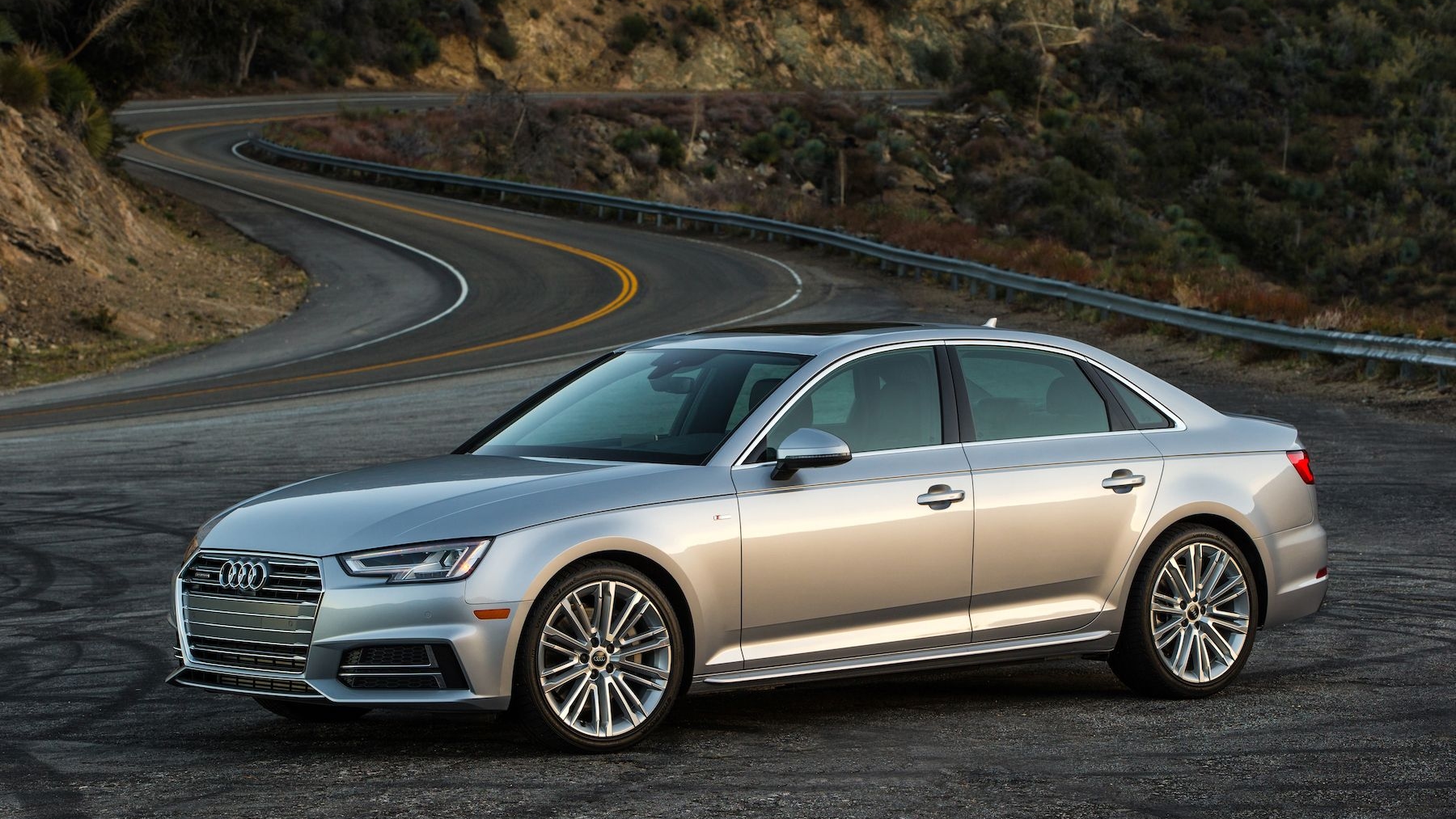An autocross course at the first-drive event for the revised 2024 Genesis G70 highlights the Korean sport sedan’s dynamic strengths and weaknesses. Newly standard Brembo brakes (13.8-inch front rotors with 4-piston calipers and 13.4-inch rear rotors with 2-piston calipers) provide strong stopping power to get the car lined up for each turn, and it becomes quickly apparent that the new 2.5-liter turbo-4 is much stronger than the 2.0-liter turbo-4 it replaces.
The car is athletic and fun to whip around this tight course, but standard Michelin Primacy all-season tires and the lack of a limited-slip differential make it hard to put the power down exiting the many tight turns. Then, when it hooks up on corner exit, it has a tendency to understeer that spurs me to either back off or wait to apply the gas until after the apex. Summer performance tires would be better here, but they’re only available with the top engine.

2024 Genesis G70
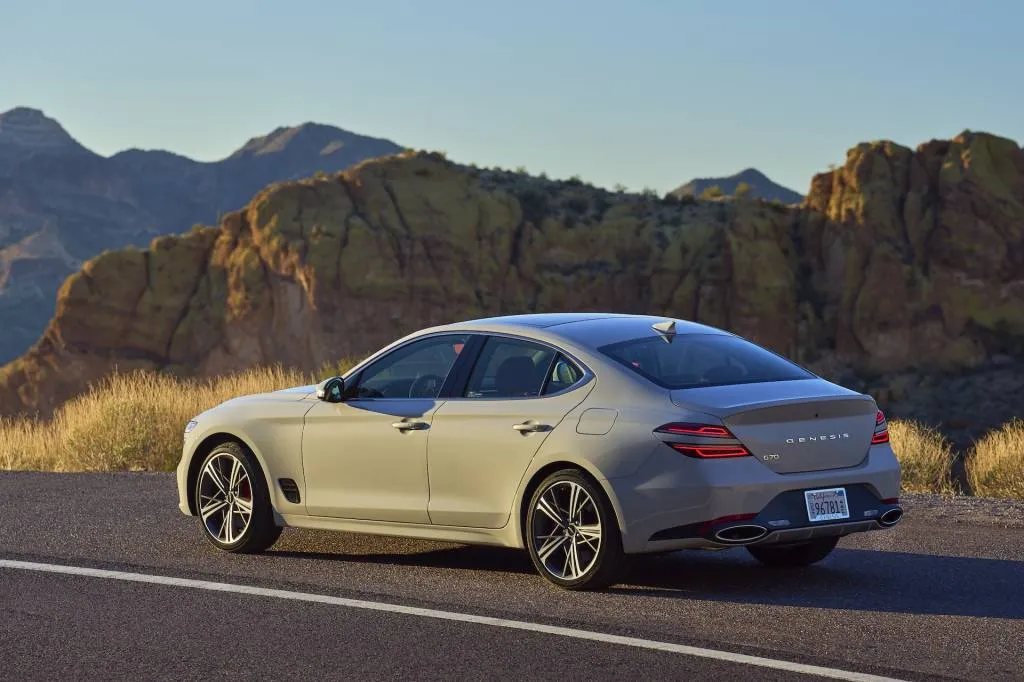
2024 Genesis G70
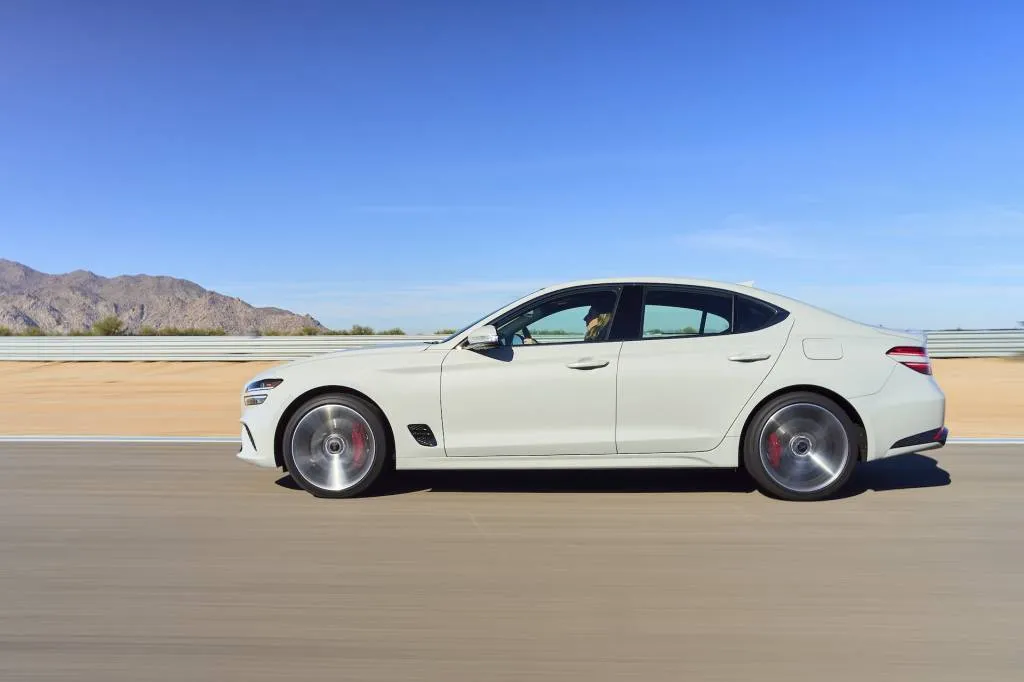
2024 Genesis G70
The biggest gains for 2024 come in the 2.5T base models. They swap a 252-hp 2.0-liter turbo-4 for a 2.5-liter turbo-4 that makes 300 hp and 311 lb-ft of torque. With an extra 48 hp and 51 lb-ft on tap, it’s a much stronger engine that’s more ready and willing across the rev band. It helps this car leap from corner to corner on the autocross, and an earlier street drive showed that it makes highway passing a breeze. It’s a fairly smooth engine, too, and it unlocks a 0-60 mph sprint as low as 5.5 seconds, according to Genesis. That’s only possible with a launch control function that Genesis is reluctant to disclose. I think it involves going to the Sport+ mode and shutting off the stability control, but the power is strong enough that I never bother to try it. Without launch control, expect a 0-60 mph time around 6.0 seconds.
The turbo-4, as well as the available twin-turbo 3.3-liter V-6, is backed by an 8-speed automatic transmission. It shifts smoothly, and it gets more responsive by mode. The G70 has Eco, Comfort, Sport, Sport+, and Custom modes. Any mode works on the street, though Sport+ can make the powertrain feel a little too highly strung. On this autocross, however, Sport+ is essential for the laps I run when not using the steering wheel shift paddles. It holds lower gears longer and downshifts quicker to access more power. On a 24-second autocross, switching from Sport+ to Sport mode costs me 0.7-1.0 second.
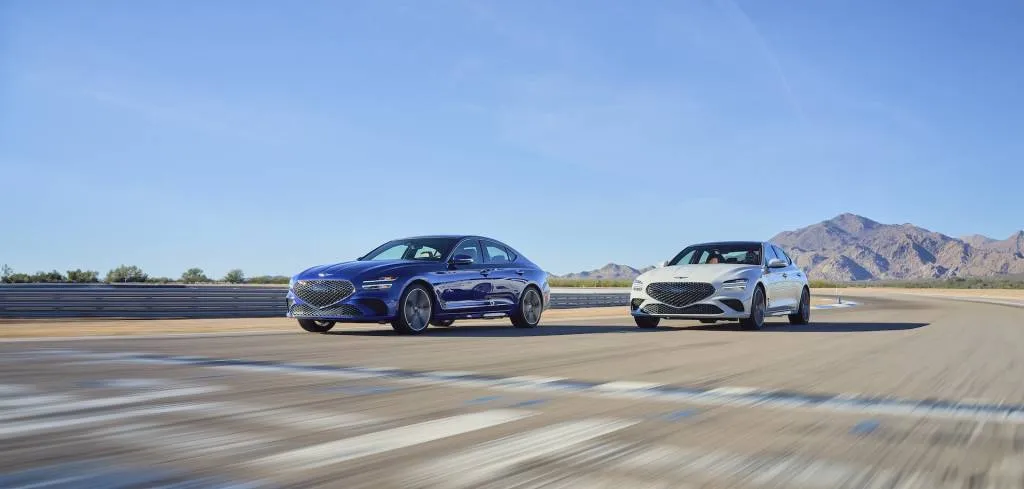
2024 Genesis G70
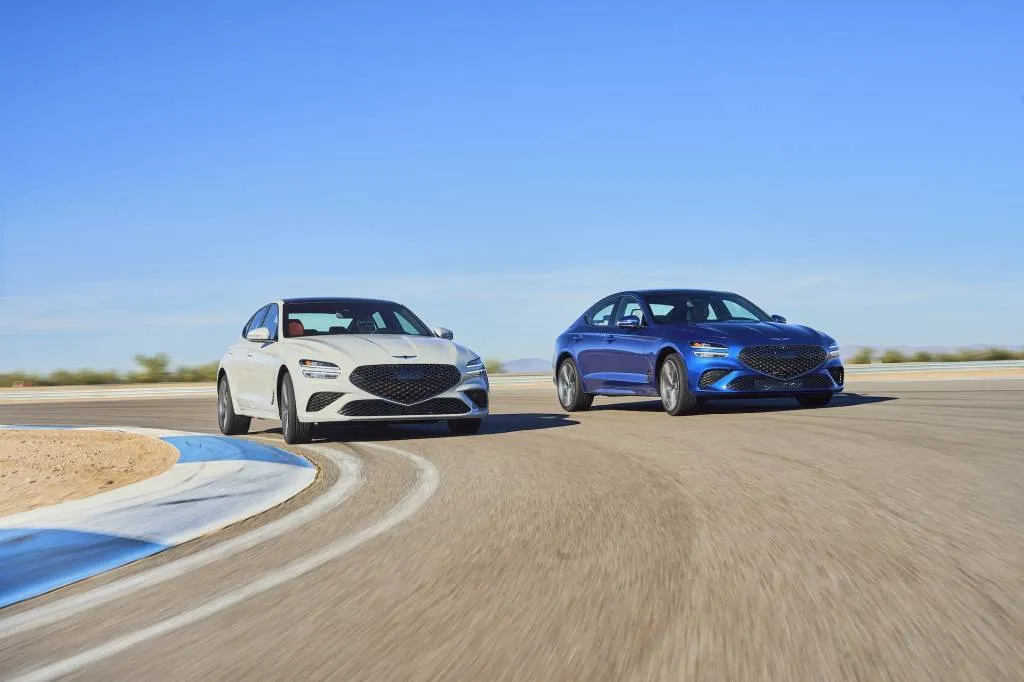
2024 Genesis G70
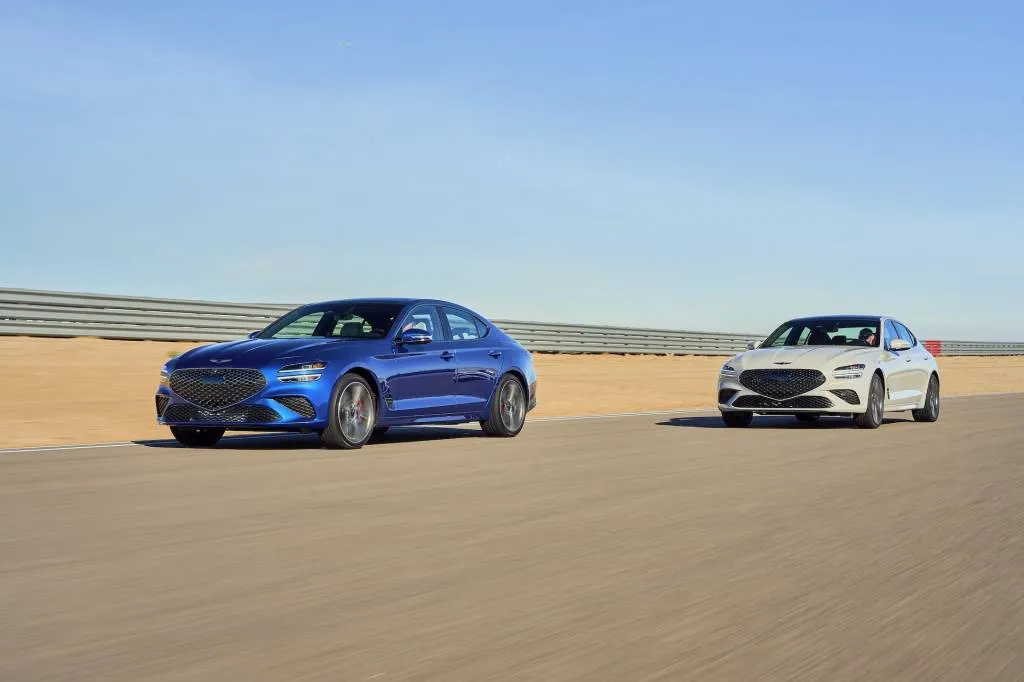
2024 Genesis G70
Genesis G70 track drive
The autocross is held in the parking lot at Apex Motor Club in Maricopa, Arizona, and a second, more-intense exercise is six laps around the track’s 2.27-mile road course in a rear-drive version of the top 3.3T Sport Prestige model. It’s powered by a carryover twin-turbocharged 3.3-liter V-6 that ups the output to 365 hp and 376 lb-ft, which unlocks a 4.5-second 0-60 mph time.
During my first three-lap session, I soon find myself falling behind British Touring Car racer Howard Fuller in an identical G70. The good news from my standpoint is the three other journalists behind me are falling farther behind. Part of the reason is certainly that Fuller’s a better driver than we are. He’s a pro, after all, and I’m a wanna-be hot shoe who’s better with words than lap times.
But the other reason is I’m just not as comfortable carrying speed through the long, sweeping corners of this track as I would be in, say, a BMW 3-Series. This car’s Michelin Pilot Sport 4 summer performance tires provide good, but not great grip, so it’s easy to slide the car when driving near the limit in tight turns. The handling is generally neutral mid-corner, but rather than hunkering down and taking a set of turns, the G70 tends to push to the outside of corners when I’m digging into the V-6’s full 365 horsepower. This model’s standard limited-slip rear differential helps the G70 hook up, but that makes the car squat at the rear and lift at the front, and thus the understeer. This despite the fact that the 3.3T Sport Prestige model comes with adjustable dampers that are in their stiffest setting.
I grow more confident in the car’s handling during my second run, and find it easier to control on corner exit by simply going easier on the throttle. The new Brembo brakes also impress with strong stopping power and no fade, though Genesis did opt for no-metal pads to handle the rigors of track driving. That’s a small price to pay for viable track performance.
The at-the-limit understeer isn’t really a bad thing, as driving on a racetrack is an edge-case scenario that few, if any, G70 buyers will experience. The G70 is a sport sedan, and while it wasn’t built as a track car it’s still quick and fun on the track or the street; it just lacks the at-the-limit poise of the best in the class.
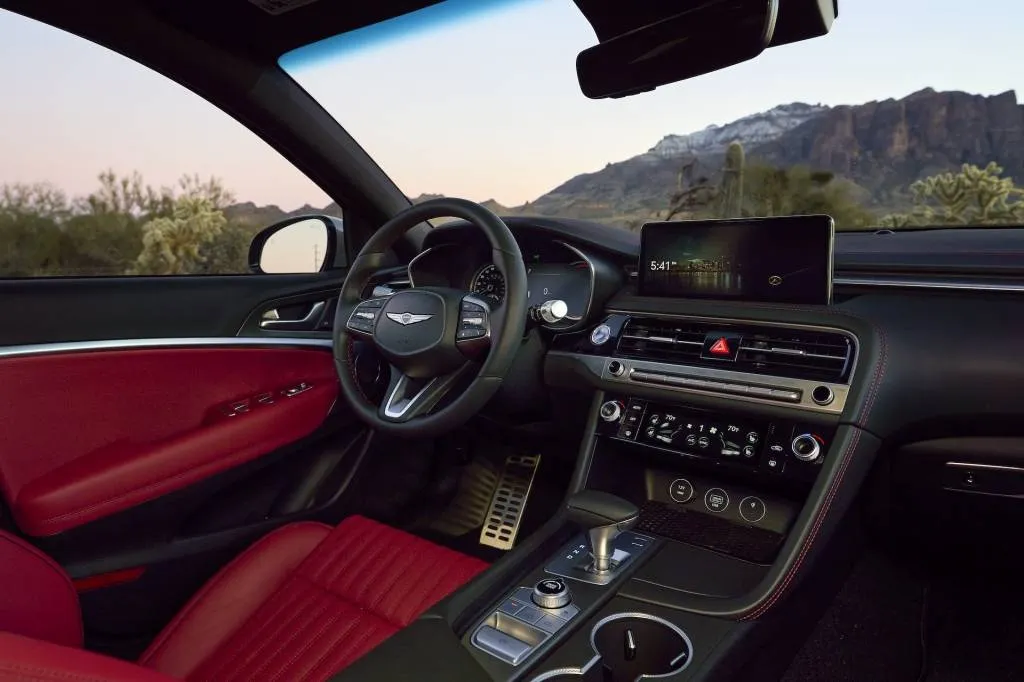
2024 Genesis G70
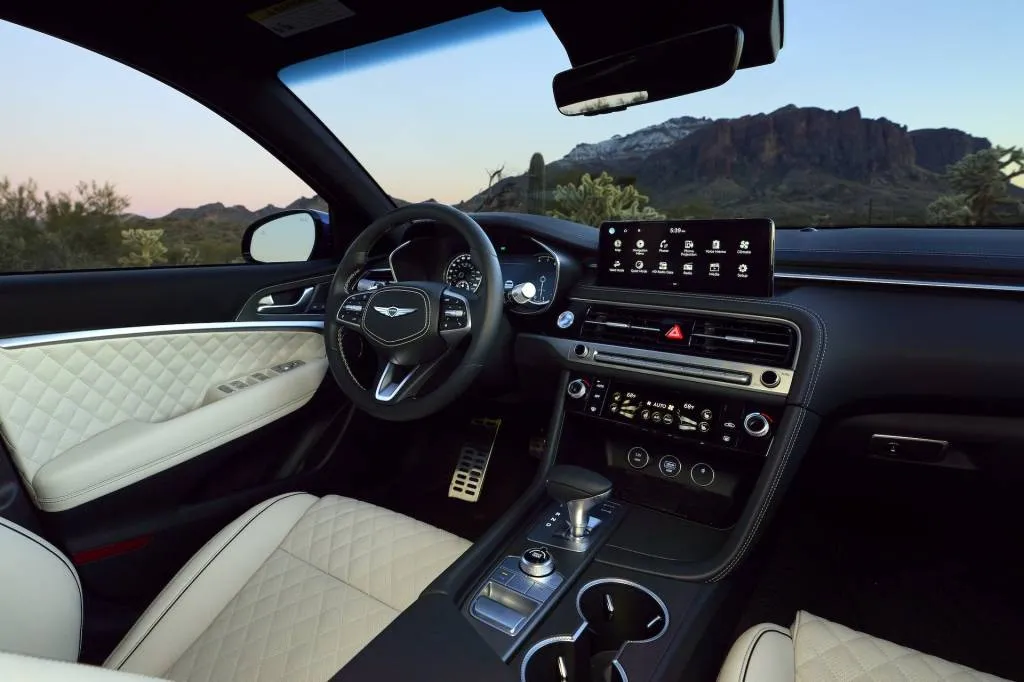
2024 Genesis G70
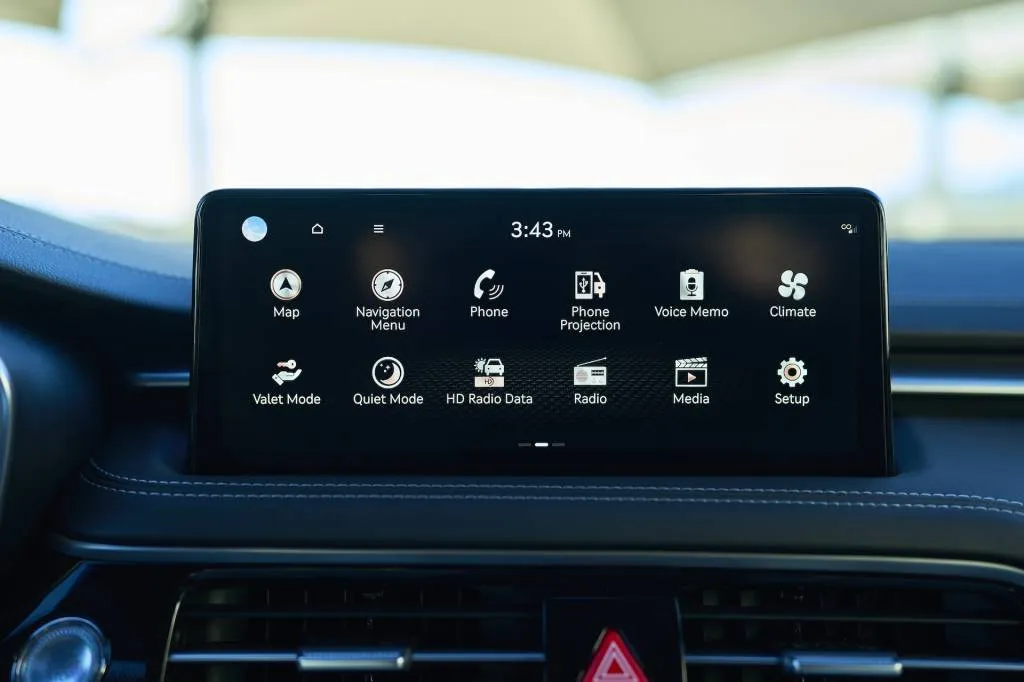
2024 Genesis G70
Genesis G70: Elegance comes standard
A pair of street drives also show the G70’s luxury sport sedan credentials. It’s generally quiet, but both the Primacy and Pilot Sport 4 tires emit notable thrum on the often coarsely paved Arizona roads. The steering has good heft and communicates well with what’s going on with the tires. The low-profile tires and sporty suspension tuning give the car a ride that may be too firm for some buyers, especially those in the Midwest who drive regularly on pockmarked roads.
The G70 strength that didn’t come out in either of the dynamic exercises is its overall elegance. It becomes apparent when simply looking at the car, and especially when hopping inside. Every G70 looks striking, with a bold shield-shaped grille and stacked headlights fronting a low-set and sleek sedan shape. Standard 19-inch wheels pushed to the corners, staggered tire sizes (225/40R19 front and 255/35R19 rear), and air outlets behind the front wheels all hint at the car’s performance character.
It's even better inside, where synthetic leather wraps the seats, doors, and dash on the base model, and the seat upholstery becomes real leather with the first step up the lineup and nappa leather in the top 3.3T Sport Prestige model. Contrast stitching and diamond-stitched upholstery patterns add to the upscale flair, and that’s only enhanced by the available red or white upholstery options. Versions with the V-6 also get a suede headliner, while every G70 features a watch-like analog speedometer teamed with an 8.0-inch digital display that serves as the tachometer, vehicle information display, and blind-spot camera display when using the blinker. A 10.3-inch touchscreen for infotainment and a new touch-sensitive digital climate panel round out the interior tech.
The new 2.5-turbo makes the base model a better choice than last year. With a $42,695 base price, the 2024 G70 costs $2,180 more than a 2023 base model while also undercutting a base BMW 3-Series by about $3,000. All-wheel drive adds $2,100 on any model, and the 3.3T starts at $51,145 in Sport Advanced trim, though we’d spring for the extra $4,400 to get the adaptive dampers and limited-slip differential of the Sport Prestige. For good measure, this trim also adds the nappa leather upholstery and synthetic suede headliner, a head-up display, a power trunk, a heated steering wheel, the blind-spot cameras, and a surround-view camera system.
The Genesis G70 remains a luxury value with its 2024 update. While we prefer the extra power and performance equipment of the top model, the new base engine makes the G70 a much more fun, luxurious, and sporty choice than the numerous compact SUVs that cost about the same. You wouldn’t take those vehicles on an autocross or racetrack, either, and if you would you’d fall much farther behind Howard Fuller.
Genesis paid for travel, lodging, and track time for Motor Authority to bring you this firsthand report.
